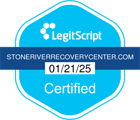Living with a substance use or mental health disorder is a journey filled with challenges, setbacks, and triumphs. Yet, one of the biggest hurdles many people face is not the addiction itself but the stigma surrounding it. The fear of judgment, shame, and misunderstanding can prevent many from seeking desperately needed help.
The stigma surrounding mental health issues is widespread. It manifests in various ways, from subtle discrimination to outright condemnation. This stigma often stems from misconceptions and stereotypes perpetuated by societal attitudes and media portrayals. Many people struggling with addiction feel ashamed and isolated, fearing the judgment and discrimination of others.
Ways to Overcome Stigma
Reducing the stigma surrounding addiction and mental health is crucial for fostering understanding, empathy, and support within communities. Here are several strategies to help break down these barriers:
- Create a Supportive Environment
Creating a supportive environment is essential for anyone struggling with addiction to feel safe and accepted. This involves fostering open and honest conversations with your loved one about mental health and addiction, free from judgment or stigma.
- Spread Education and Awareness
Increasing public knowledge about addiction and mental health disorders is critical to combating stigma. Educational campaigns, workshops, and community events can help dispel myths and misconceptions, providing accurate information about the nature of these conditions and how they can be effectively treated.
- Humanize Personal Stories
Sharing your own story of recovery can humanize addiction and mental health struggles. Hearing firsthand accounts from others who have overcome challenges can dispute stereotypes and inspire empathy. Platforms such as blogs, social media, and public speaking engagements provide opportunities for individuals to share their experiences and reduce stigma.
- Remember that Language Matters
The language you use when discussing addiction and mental health can significantly impact stigma. Avoiding stigmatizing language and instead using person-centered and nonjudgmental terminology can help reduce negative attitudes. For example, using phrases like “person with a substance use disorder” rather than “addict” can promote dignity and respect.
- Encourage Open Dialogue
Creating safe spaces for open dialogue and discussion about substance use disorders and mental health is essential for reducing stigma. You can break down barriers and promote understanding by encouraging conversations within families, schools, workplaces, and communities. Peer support groups and community forums allow individuals to share their experiences and receive support without fear of judgment.
- Advocate Policy Change
Being an advocate for policy changes and increased funding for addiction treatment and mental health services is crucial for reducing stigma. Additionally, advocating for laws and regulations that protect the rights of individuals with addiction and mental health disorders can help combat discrimination and promote inclusion.
- Don’t Stay Silent
When witnessing someone facing judgment or mistreatment due to their mental health condition or substance use disorder, it’s crucial to speak up. Allowing negative and uninformed discussions only perpetuates the stigma. Stigma often arises from ignorance, so voicing your perspective can contribute to resolving the issue.
- Celebrate Recovery
Acknowledge and celebrate the successes of yourself or others who are overcoming addiction or managing mental health challenges. By highlighting your achievements, you reinforce the message that recovery is possible and worthy of support and recognition.
- Lead by Example
Demonstrate empathy and compassion in your interactions with others, especially those facing addiction or mental health challenges. Show kindness, understanding, and patience, and refrain from perpetuating stereotypes or stigma. Your actions can inspire others to follow suit and contribute to a supportive environment.
Are You or a Loved One Looking for Support?
Reaching out for support is a courageous step toward healing. Therapy, support groups, and medication-assisted treatment are a few of the numerous resources available to assist with the recovery journey. Remember that asking for help is not a sign of weakness but a sign of strength.
If you or a loved one is struggling with a substance use or mental health disorder, help is available. At Stone River Recovery Center in San Antonio, Texas, we offer residential treatment and detox services as well as outpatient mental health services and substance use treatment. To learn more about how we can help, please contact us today.








